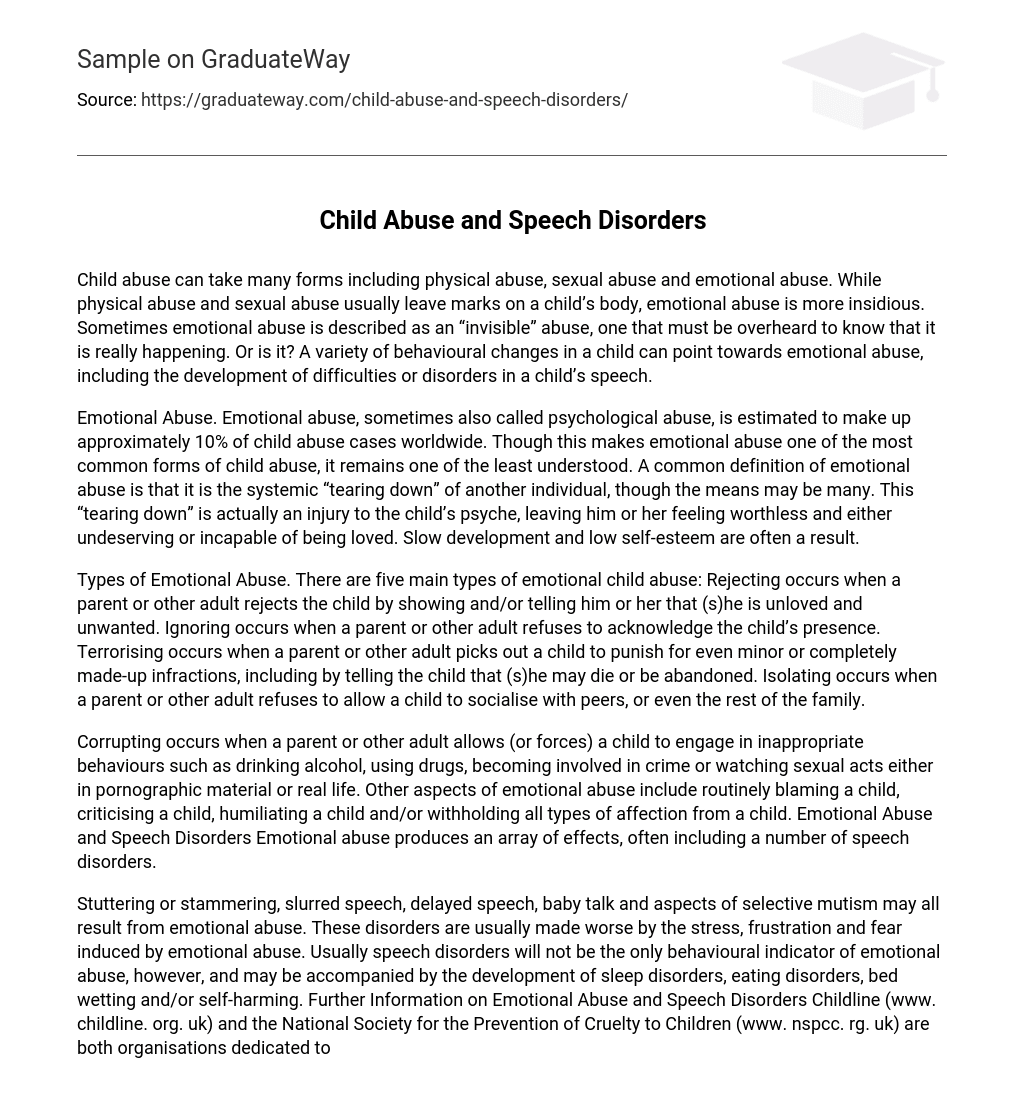Child abuse includes physical, sexual, and emotional forms of abuse. Physical and sexual abuse typically cause visible harm to a child’s body. On the other hand, emotional abuse is a hidden form of abuse often referred to as “invisible” because it cannot be directly observed. However, children may exhibit behavioral changes that can indicate emotional abuse, such as developing speech difficulties or disorders.
Psychological abuse, also referred to as emotional abuse, is a common type of child abuse that occurs globally and makes up around 10% of cases. Nevertheless, it is still one of the least understood forms of child abuse. Emotional abuse includes purposefully demeaning someone through different means, leading to damage to the child’s mental state. This damage causes them to feel worthless and believe they are unworthy or unable to receive love. Consequently, this frequently obstructs their growth and reduces their self-esteem.
The main forms of emotional child abuse include Rejecting, where a parent or adult communicates to the child that they are unloved and unwanted. Additionally, there is Ignoring, when a parent or adult disregards the child’s presence. Moreover, Terrorising involves targeting a child for punishment, even for minor or false offenses, often through threats of death or abandonment. Lastly, isolating occurs when a parent or adult limits the child’s interaction with peers or other family members.
Corruption is the act of a parent or adult allowing or forcing a child to engage in inappropriate activities, like drinking alcohol, using drugs, committing crimes, or witnessing sexual acts either through pornography or in real life. Emotional abuse includes other forms of mistreatment such as consistently blaming, criticizing, humiliating, or withholding affection from a child. This emotional abuse can have various consequences and often results in speech disorders.
Emotional abuse can result in various speech disorders, such as stuttering, slurred speech, delayed speech, baby talk, and selective mutism. These disorders are often worsened by the stress, frustration, and fear caused by emotional abuse. Alongside speech disorders, other behavioral signs of emotional abuse may include sleep disorders, eating disorders, bed wetting,and self-harming. Childline (www.childline.org.uk) and the National Society for the Prevention of Cruelty to Children (www.nspcc.org.uk) are organizations that provide support for child abuse victims. They can offer further information on how emotional abuse impacts children. The British Stammering Association (www.stammering.org) and Talking Point (www.talkingpoint.org.uk) are available resources for additional information on speech disorders.Medical professionals,speech and language professionals,and mental health professionals also serve as valuable sources of information regarding child abuse,
emotional abuse,and speech disorders.





